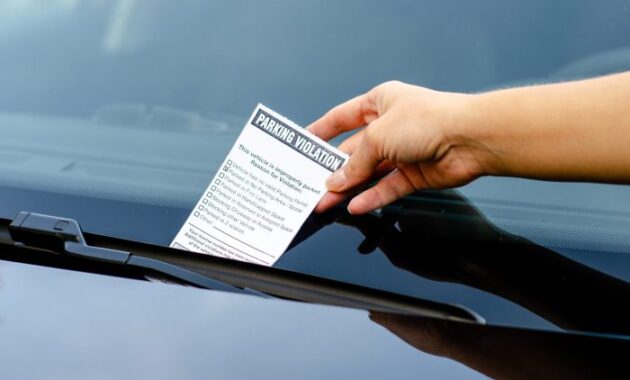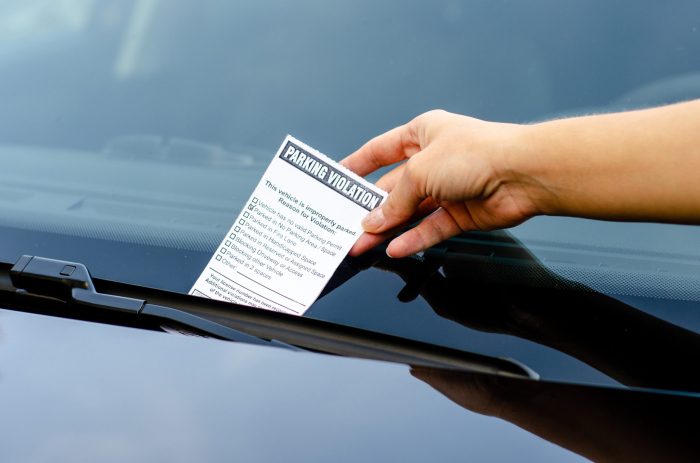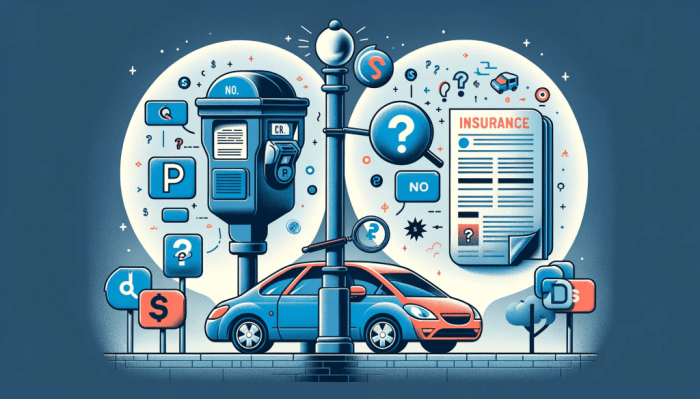
Navigating the world of traffic tickets and their impact on car insurance can be confusing. Many drivers worry that any infraction will automatically lead to higher premiums. However, the reality is more nuanced. Not all tickets carry the same weight with insurance companies. This guide clarifies which types of tickets are less likely to affect your insurance rates, helping you understand your rights and responsibilities as a driver.
We’ll explore various scenarios, from minor traffic violations to parking tickets, and examine how factors like driving history and the specific insurance provider influence the outcome. Understanding this information empowers you to make informed decisions and potentially avoid unnecessary increases in your insurance costs.
Factors Influencing Insurance After a Ticket

Receiving a traffic ticket can significantly impact your car insurance premiums. The extent of the impact depends on several interconnected factors, going beyond simply the type of violation. Understanding these factors can help drivers anticipate potential increases and take steps to mitigate their effects.
Driving History’s Role in Premium Determination
Your driving history is a cornerstone in how insurance companies assess risk. A clean driving record, free of accidents and tickets, generally translates to lower premiums. Conversely, a history of violations, especially serious ones like DUI or reckless driving, will dramatically increase your rates. Even a single ticket can influence your premiums, particularly if it’s for a serious offense or if it’s your first infraction in a long time, breaking an established pattern of safe driving. The more recent the violation, the more weight it carries. For example, a speeding ticket from five years ago will likely have less impact than one received last month. Insurance companies use sophisticated algorithms that analyze your driving history to calculate your risk profile, and a ticket is a significant data point in that analysis.
Factors Beyond the Ticket Itself
Insurance companies consider a wide range of factors beyond the specific ticket received. Your age plays a significant role, as younger drivers are statistically involved in more accidents. Your location also matters; areas with higher accident rates often lead to higher premiums. Your credit score, surprisingly, can also influence your insurance rates in many states, reflecting your overall financial responsibility. The type of vehicle you drive is another key factor; sports cars and high-performance vehicles are generally more expensive to insure due to higher repair costs and a greater risk of accidents. Finally, your insurance history, including claims filed and lapses in coverage, also contributes to your overall risk profile.
Variability in Insurance Company Handling of Tickets
Different insurance companies employ different rating systems and algorithms. While a speeding ticket might result in a 10% increase with one company, it could be 15% or even more with another. Some companies might be more lenient towards first-time offenders, while others might take a stricter approach. This variation underscores the importance of shopping around and comparing quotes from multiple insurers before settling on a policy. It’s also important to understand each company’s specific criteria for evaluating driving records and the potential impact of various traffic violations.
Impact of Single Versus Multiple Tickets
A single ticket will generally result in a modest premium increase, especially if it’s a minor infraction. However, accumulating multiple tickets, particularly within a short period, can lead to significantly higher premiums. The cumulative effect of multiple violations demonstrates a pattern of risky driving behavior, prompting insurers to significantly increase your rates or even cancel your policy altogether. For instance, multiple speeding tickets combined with a reckless driving citation could result in a substantial premium increase, potentially doubling or even tripling your previous rate. The severity and frequency of the tickets are key factors in determining the overall impact.
Steps to Mitigate the Effects of a Ticket
Taking proactive steps can help minimize the negative impact of a ticket on your insurance.
- Attend driving safety courses: Many insurance companies offer discounts for completing approved defensive driving courses. This demonstrates a commitment to improving driving habits.
- Maintain a clean driving record: Avoid further violations to demonstrate consistent safe driving behavior.
- Shop around for insurance: Compare quotes from different insurers to find the best rates, as pricing can vary significantly.
- Negotiate with your insurer: Explain the circumstances surrounding the ticket and see if you can negotiate a lower rate increase.
- Consider a usage-based insurance program: Some insurers offer programs that track your driving habits, potentially rewarding safe driving with lower premiums.
Illustrative Examples of Non-Impactful Tickets

Many traffic infractions and parking violations do not impact insurance premiums. This is because insurance companies primarily focus on incidents demonstrating a higher risk of future accidents, such as speeding significantly over the limit or driving under the influence. Minor offenses often fall outside this risk assessment.
Minor Traffic Infraction Example: Rolling Stop
Imagine Sarah, a careful driver with a clean driving record for five years. One afternoon, while approaching a stop sign on a quiet residential street with excellent visibility and no other traffic, Sarah performed a rolling stop. She slowed significantly, checked for traffic (none was present), and proceeded cautiously. A police officer witnessed this and issued her a citation for failing to make a complete stop. This single instance of a rolling stop, considered a minor infraction, did not result in any points added to her driving record nor did it affect her insurance premium. Her insurance company likely considered it a minor, isolated incident that did not reflect her overall driving history. The absence of any other violations further supported this assessment.
Parking Ticket Example: Expired Meter
Consider John, a diligent driver with a spotless record. While running a quick errand downtown, John parked his car in a metered space, intending to return within the allotted time. However, he misjudged the duration of his errand and his parking meter expired. He received a parking ticket. This parking violation, occurring in a designated parking space and not involving any driving-related infraction, did not influence his car insurance rates. Parking tickets are generally not considered in insurance risk assessments, as they do not directly reflect driving skills or accident potential. His insurance company viewed the incident as an isolated parking infraction unrelated to his driving behavior and overall risk profile.
Last Recap

In conclusion, while receiving any ticket can be unsettling, understanding which infractions are less likely to impact your insurance premiums can provide significant peace of mind. By carefully reviewing your driving record, understanding your insurance policy, and taking proactive steps to manage any tickets received, you can maintain control over your insurance costs. Remember to always drive safely and responsibly, as this is the best way to avoid tickets altogether and maintain a favorable driving record.
FAQ Summary
Does a ticket for a broken taillight affect my insurance?
Generally, a ticket for a broken taillight, if it’s a purely mechanical issue and not related to reckless driving, is unlikely to directly increase your premiums. However, failure to repair it could lead to further tickets, which *could* impact your rates.
What if a ticket is dismissed? Does it still affect my insurance?
If a ticket is dismissed or expunged, it usually won’t appear on your driving record and therefore won’t affect your insurance. However, it’s crucial to confirm this with your insurance provider and provide documentation of the dismissal.
How do different insurance companies handle tickets differently?
Insurance companies have varying algorithms and scoring systems. Some might be more lenient than others regarding certain minor infractions. It’s advisable to compare quotes from multiple providers to see how they weigh different tickets.
Can I appeal a ticket to prevent it from affecting my insurance?
Appealing a ticket is possible, and a successful appeal can prevent it from appearing on your driving record, thus avoiding any impact on your insurance. However, the success of an appeal depends on the specific circumstances and the jurisdiction.